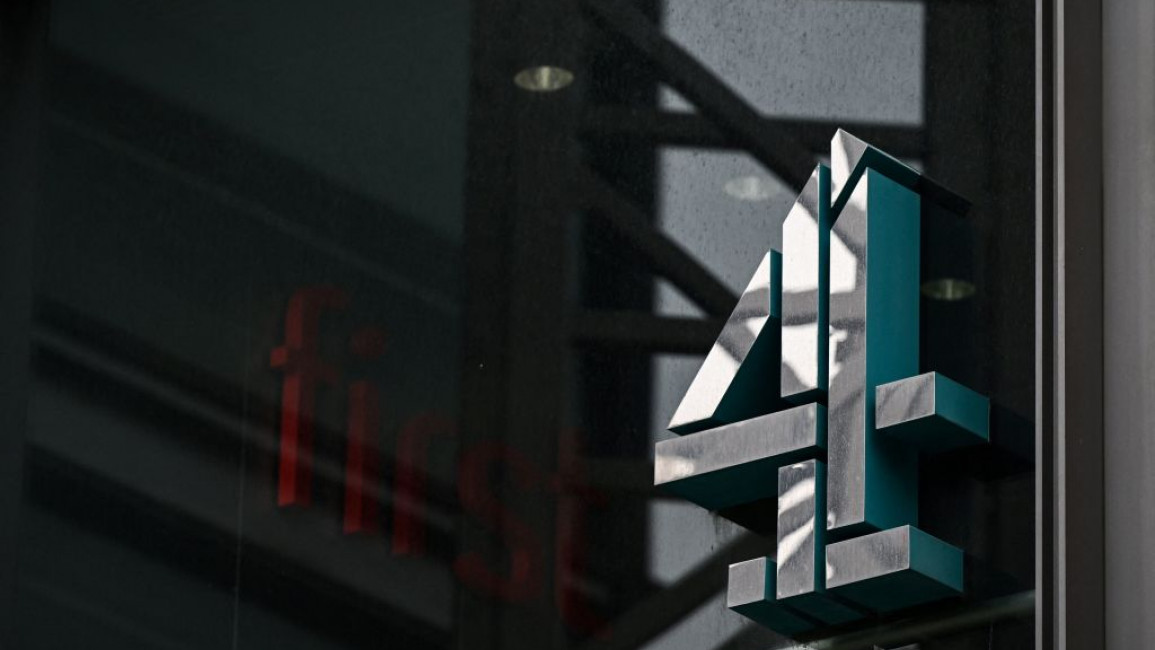The UK's Channel 4: five iconic moments from the broadcaster's coverage of the Middle East and Arab communities
The UK government is pushing ahead with controversial plans to privatise British broadcaster Channel 4.
The broadcaster - which has been commercially funded but state-owned for 40 years - is expected to be up for sale by the end of 2023, in a move that could raise more than £1 billion (US$1.3 billion).
Government officials said public ownership is “holding [the broadcaster] back in the face of a rapidly changing and competitive media landscape”.
Channel 4 released a statement on Monday calling the announcement “disappointing”.
“Channel 4 has engaged in good faith with the Government throughout the consultation process, demonstrating how it can continue to commission much-loved programmes from the independent sector across the UK that represent and celebrate every aspect of British life as well as increase its contribution to society, while maintaining ownership by the public.”
The broadcaster said it will continue to work with the government in what is likely to be a “lengthy legislative process and political debate” over its future.
Looking back, The New Arab has selected five iconic moments from Channel 4’s history covering the Arab communities and the Middle East.
Alastair Campbell’s infamous WMD interview
Perhaps one of the broadcaster’s most notorious interviews occurred in 2003. Alastair Campbell, communications director in Tony Blair’s government, was questioned over the media coverage of the Iraq invasion. Campbell was on the defensive following allegations that the UK government “deliberately exaggerated, abused and distorted intelligence” to justify the invasion. He said they had not.
The UK Chilcot inquiry into the 2003 invasion later concluded that the UK government misrepresented the severity of the threat posed by Iraq’s weapons of mass destruction.
The US-led invasion killed at minimum tens of thousands of people and fuelled sectarianism and extremism across the Middle East.
Channel 4 hires the first hijab-wearing TV newsreader, Fatima Manji
Fatima Manji, who started her career at the BBC, rose to prominence when she became a leading news presenter for Channel 4 in March 2016.
When asked why representation in journalism matters, Manji told The Guardian: “It matters because it’s really important that newsrooms reflect the populations they serve…It allows us to be better journalists - that’s why it’s important”.
“For a 17-year-old to help with the bills it's… upsetting.”
— Channel 4 News (@Channel4News) April 2, 2022
Lynn West is one of many in the UK struggling with soaring bills after the energy cap was lifted on Friday.
She tells @fatimamanji her teenage son says he will get a job to help her stay out of debt. pic.twitter.com/VSLeuYb5H8
Channel 4 commissions Waad al-Kateab as an exclusive film-maker in Syria
In 2015, Channel 4 commissioned Waad Al-Kateab, a young journalist in Aleppo, to make a film about life inside the city. As the war continued, the broadcaster took the decision to hire her exclusively to document life under siege.
Much of what Kateab covered came from the emergency room of the hospital where her doctor husband worked. Channel 4 praised the Syrian for humanising the victims, “showing us whole families in their worst moments”.
Kateab’s reports later became the basis of the award-winning film For Sama, which followed her experiences as a mother-to-be in Aleppo.
If you noticed the embroidery on @waadalkateab’s dress, you’ll be interested to know that it’s an Arabic poem that translates as “we dared to dream and we will not regret dignity” #oscars #redcarpet #redcarpetfashion #oscars2020 #waadalkateab #forsama pic.twitter.com/XzLPaZbgUF
— For Sama (@forsamafilm) February 9, 2020
Jon Snow speaks out for the children of Gaza
Following the bombardment of Gaza in 2014, when over 2,000 Palestinians were killed, lead anchor Jon Snow made an impassioned speech about the children of Gaza on the channel's flagship news programme.
“I’m back and in the comfort of this studio, it’s hard to imagine I was ever away…
“In a very densely packed urban area, if you decide to throw missiles and shells, then undoubtedly you will kill children.”
As of 2014, roughly 43 percent of Gaza’s 1.8 million population was aged 14 or younger.
Channel 4 commissions Gogglebox, featuring hijab-wearing sisters from London
One of the broadcaster's run-away successes has been the smash hit Gogglebox - a show about people watching TV.
The first series launched in March 2013, and the nineteenth series began airing in February 2022.
Some of the show’s stand-out stars are Amani and Amira, two hijab-wearing sisters from north London.
The show has won several awards and was praised by critics for showing a diverse, modern representation of Britain.



